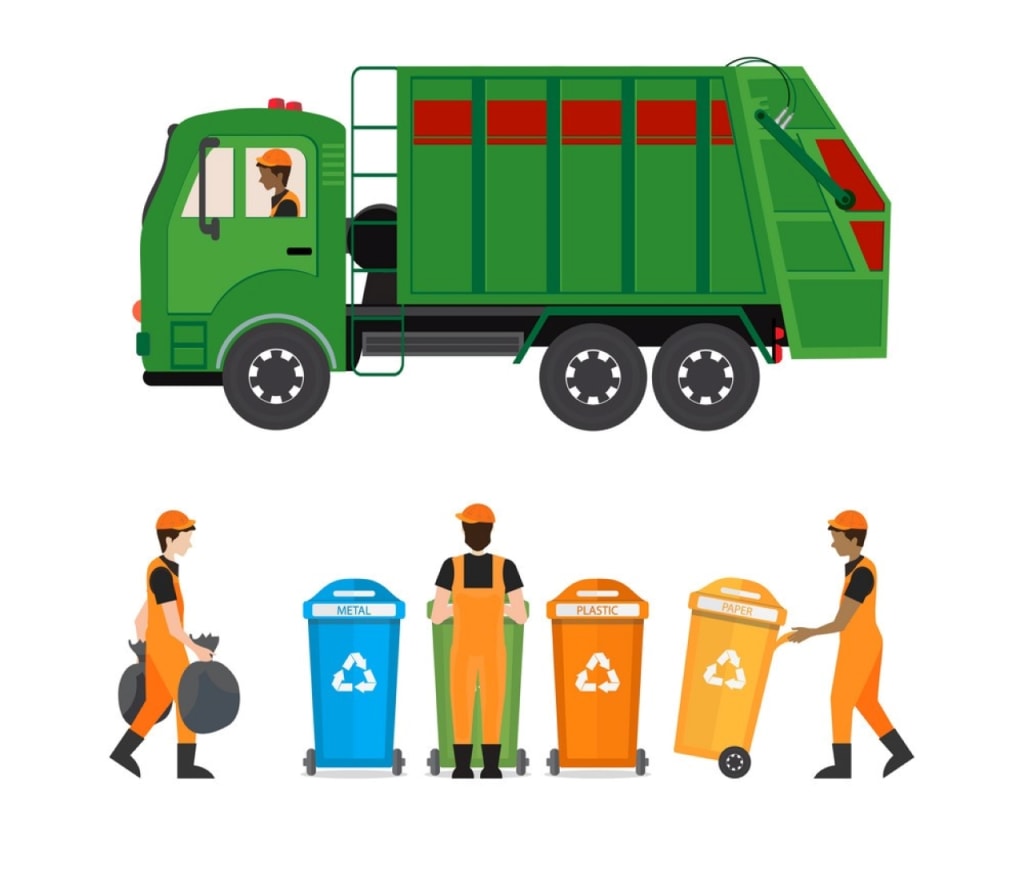Transforming Food Waste into Nature's Gold: The Journey of Compost
Unveiling the Microbial Magic at Next Step Falls

Introduction
In a quaint location 80 miles east of San Francisco lies Next Step Falls, a bustling site where more than a dozen trucks unload vast amounts of food waste every day. But what may seem like a chaotic heap of organic material holds the potential for a remarkable transformation. Welcome to the world of composting, where the site's tiniest workers, microorganisms, play a crucial role in turning waste into nutrient-rich compost. This is a tale of the intricate interplay between nature's decomposers and the composting process that breathes life back into the Earth.
The Unsung Heroes: Microorganisms
At the heart of the composting process are the unsung heroes—microorganisms. These tiny living beings, invisible to the naked eye, thrive on the organic material found in food and yard waste. Just like humans, they need water, air, and the right temperature to flourish. To maintain their vigorous activity, a steady airflow is essential, allowing these microorganisms to breathe and carry out their vital work. A delicate balance is required to ensure their survival and productivity throughout the composting journey.
A Balancing Act: The Ideal Environment
Microorganisms are surprisingly finicky creatures. Like master chefs, they demand precise conditions to work their magic. Too much heat, and they perish; too little, and they become dormant. The temperature must be carefully regulated, like a symphony conductor fine-tuning the orchestra. Maintaining the composting environment within this narrow temperature range not only ensures the survival of these essential workers but also accelerates the composting process.
From Waste to Wonder: The Composting Process
Now that we've delved into the world of microorganisms, let's unveil the fascinating composting process itself. Initially, the mounds of food waste might seem unsightly, but they hold the potential to bloom into something beautiful. As the microorganisms feed on the organic matter, they break it down into its basic components, enriching the compost with nutrients.
A Symphony of Transformation
The composting site is a symphony of transformation, with various stages unfolding harmoniously. Microorganisms of diverse types collaborate, each specializing in different aspects of decomposition. As the compost matures, it undergoes several changes, and the skilled composting team orchestrates the process to yield the finest results.
Farm to Fork, Fork back to Farm
As the saying "Farm to Fork" gained popularity, a complementary concept emerged at Next Step Falls—Fork back to Farm. Instead of letting food waste go to waste, the site puts it to good use by converting it into nutrient-rich compost. This organic gold returns to the farms, completing the circle of sustainability and nourishing the soil to grow more wholesome produce.
The Beauty of the Finished Product
After weeks of meticulous care and attention, the compost reaches its peak maturity. Now comes the time to witness the beauty of the finished product. As the piles are turned over, you'll see dark, crumbly, earthy compost, rich with the goodness of decomposed organic matter. It holds the promise of revitalizing soil, fostering healthier crops, and contributing to a more sustainable future.
Closing the Loop: Compost as Nature's Gift
Compost is more than just a means of waste management; it's a gift from nature itself. With its ideal moisture content, it ensures the efficient retention of water in the soil, reducing water wastage and promoting water conservation. Moreover, compost acts as a natural fertilizer, eliminating the need for harmful chemicals, thus safeguarding the environment and human health.
Conclusion
Next Step Falls exemplifies the transformative power of composting, showcasing how even the tiniest creatures can make an enormous impact on sustainability and environmental well-being. As we've seen, the symphony of microorganisms and the composting process are nothing short of magical, turning food waste into a valuable resource for our planet. So, the next time you look at a pile of food waste, think about the beauty hidden within and the potential to create nature's gold—compost. Let us continue to embrace this ecological treasure and work hand in hand with nature to build a greener, more prosperous future.





Comments
There are no comments for this story
Be the first to respond and start the conversation.